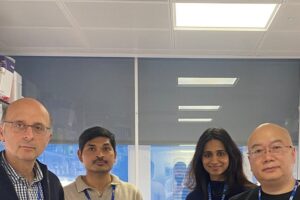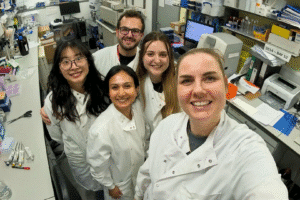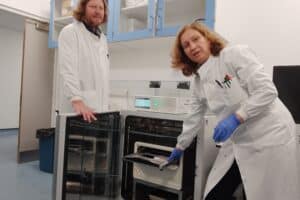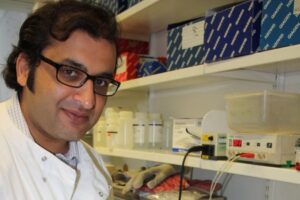Research
Understanding why chromosome duplication occurs in the cells of children with cancer
The cells of children’s and young people’s cancers often contain extra copies of chromosomes, known as aneuploidy, but it is not well understood why this occurs.
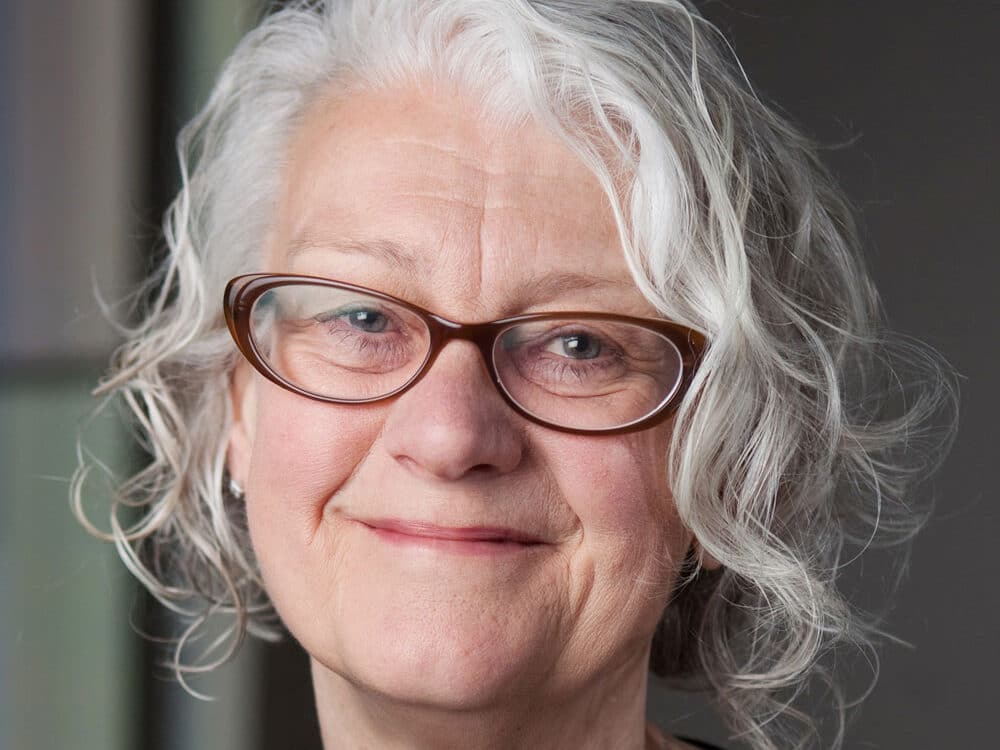
Project Details
- Aneuploidy is a driver of childhood cancer and a target for novel therapies.
- Lead Researcher
- Professor Christine Harrison, Professor Jonathan Higgins and Professor Steve Clifford
- Research Centre
- Newcastle University
- City & Institution Postcode
- Newcastle, NE1 7RU
- Start Date
- —
- Project Duration
- 36 months
- Grant Amount
- £975,248.60
Overview
This project is co-funded with Cancer Research UK as part of the Cancer Research UK–Children with Cancer UK Innovation Awards. Children with Cancer UK has contributed £487,624.30 towards this research project, the total cost of the project is £975,248.60
Professor Christine Harrison and her team will investigate the underlying mechanisms that drive aneuploidy across many types of childhood cancers and how aneuploidy contributes to cancer formation. This could help doctors to better monitor patients and may also lead to us finding new ways to treat these types of cancer and potentially prevent certain cancers from developing in the first place.
Our cells usually contain 46 chromosomes. When chromosomes are gained, it is known as aneuploidy, a state often found in the cancer cells of children and young people with different types of cancer. Why aneuploidy occurs is not well understood, but Professor Christine Harrison and her team intend to explore it further. They will look for the common, underlying mechanisms that drive the formation of these aneuploidies across many types of childhood cancers, including genetic factors that predispose the child to developing aneuploidy. They will also work on understanding how aneuploidy contributes to cancer formation, including how the duplicated genetic information present can induce cancer.
Potential impact
The results from this study have the potential to improve our understanding of cancer in a way that may eventually help scientists identify children at greater risk of developing aneuploidy, allowing for better monitoring of those individuals. They may also lead to us finding new ways to treat these types of cancer and potentially prevent certain cancers from developing in the first place.
About the research team
Professor Christine Harrison is Professor of Childhood Cancer Cytogenetics and she leads the Leukaemia Research Cytogenetics group at Newcastle University. Her research focus is the improvement of outcomes for childhood patients with acute lymphoblastic leukaemia through better understanding the role played by genetics in this disease. Professor Jonathan Higgins is Professor of Eukaryotic Molecular Cell Biology at Newcastle University. His research focuses on cell division, including its role in cancer. Professor Steven Clifford is Professor of Molecular Paediatric Oncology and is the director of the Centre for Cancer at Newcastle University. His research focuses on the molecular basis of childhood brain tumour development.
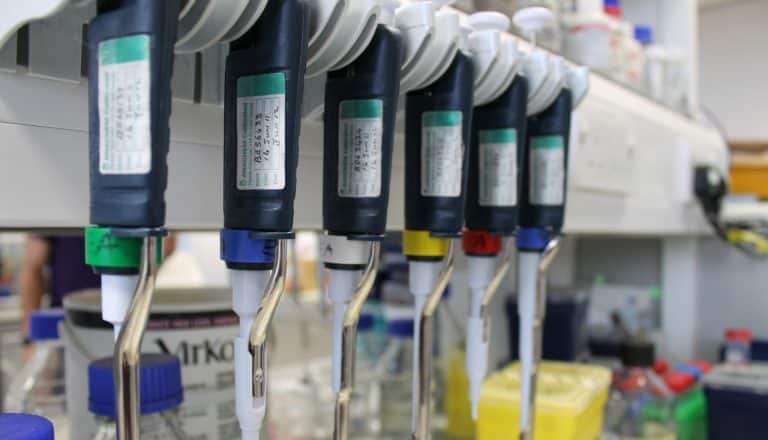
Other stories
We have lots of information to help you learn more about childhood cancer. From specific cancer types, to treatments and causes.

